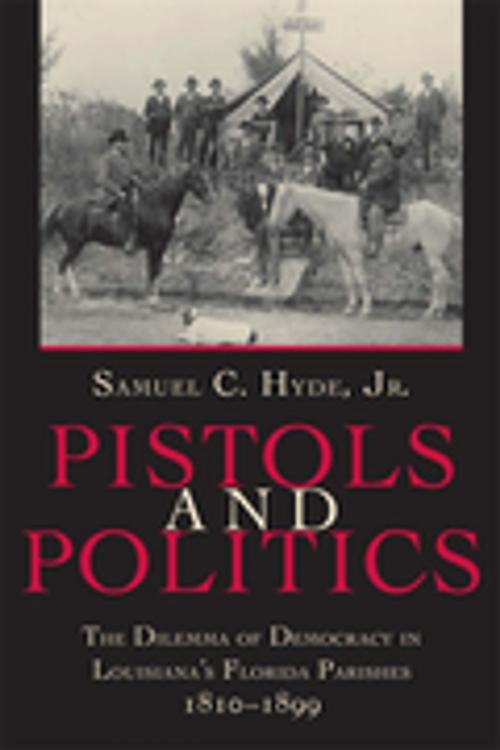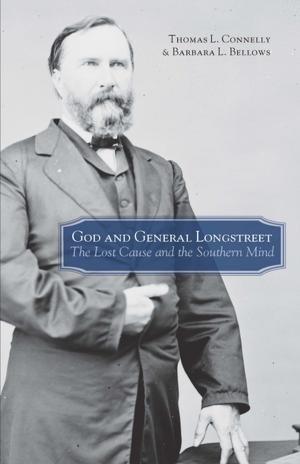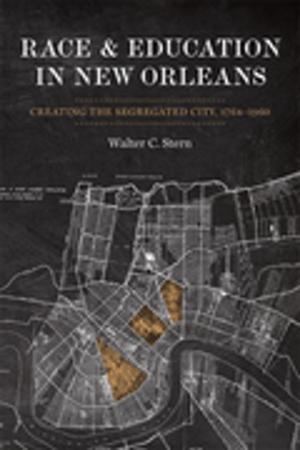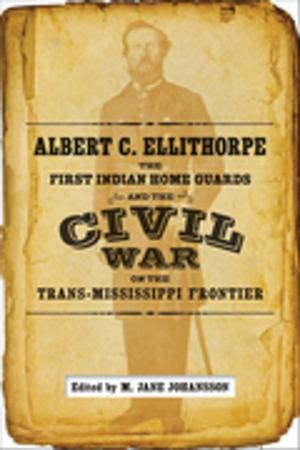Pistols And Politics
The Dilemma of Democracy in Louisiana's Florida Parishes, 1810--1899
Nonfiction, History, Americas, United States| Author: | Samuel C. Hyde Jr | ISBN: | 9780807152607 |
| Publisher: | LSU Press | Publication: | February 1, 1998 |
| Imprint: | LSU Press | Language: | English |
| Author: | Samuel C. Hyde Jr |
| ISBN: | 9780807152607 |
| Publisher: | LSU Press |
| Publication: | February 1, 1998 |
| Imprint: | LSU Press |
| Language: | English |
In the nineteenth-century South, there existed numerous local pockets where cultures and values different from those of the dominant planter class prevailed. One such area was the Florida parishes of southeastern Louisiana, where peculiar conditions combined to create an enclave of white yeomen. In the years after the Civil War, levels of violence among these men escalated to create a state of chronic anarchy, producing an enduring legacy of bitterness and suspicion. In Samuel C. Hyde's careful and original study of a society that degenerated into utter chaos, he illuminates the factors that allowed these conditions to arise and triumph.
Early in the century, the Florida parishes were characterized by an exceptional level of social and political turmoil. Stability emerged as the cotton economy expanded into the piney-woods parishes during the 1820s and 1830s, bringing with it slaves and prosperity -- but also bringing increasing dominance of the region by a powerful planter elite that shaped state government to suit its purposes.
By the early 1840s, Jacksonian political rhetoric inspired a newfound assertiveness among the common folk. With the construction of a railroad through the piney-woods region at the close of the antebellum period and the collapse of the planter class at the end of the Civil War, the plain folk were finally able to reject the planters' authority. Traditional patterns of political and economic stability were permanently disrupted, and the residents -- their Jeffersonian traditions now corrupted by the brutal war and Reconstruction periods -- rejected all governance and resorted increasingly to violence as the primary solution to conflict. For the remainder of the nineteenth century, the Florida Parishes had some of the highest murder rates in the country.
In Pistols and Politics, Hyde gives serious scrutiny to a region heretofore largely neglected by historians, integrating the anomalies of one area of Louisiana into the history of the state and the wider South. He reassesses the prevailing myth of poverty in the piney woods, portrays the conscious methods of the ruling planter elite to manipulate the common people, and demonstrates the destructive possibilities inherent in the area's political traditions as well as the complex mores, values, and dynamics of a society that produced some of the fiercest and most enduring feuds in American history.
In the nineteenth-century South, there existed numerous local pockets where cultures and values different from those of the dominant planter class prevailed. One such area was the Florida parishes of southeastern Louisiana, where peculiar conditions combined to create an enclave of white yeomen. In the years after the Civil War, levels of violence among these men escalated to create a state of chronic anarchy, producing an enduring legacy of bitterness and suspicion. In Samuel C. Hyde's careful and original study of a society that degenerated into utter chaos, he illuminates the factors that allowed these conditions to arise and triumph.
Early in the century, the Florida parishes were characterized by an exceptional level of social and political turmoil. Stability emerged as the cotton economy expanded into the piney-woods parishes during the 1820s and 1830s, bringing with it slaves and prosperity -- but also bringing increasing dominance of the region by a powerful planter elite that shaped state government to suit its purposes.
By the early 1840s, Jacksonian political rhetoric inspired a newfound assertiveness among the common folk. With the construction of a railroad through the piney-woods region at the close of the antebellum period and the collapse of the planter class at the end of the Civil War, the plain folk were finally able to reject the planters' authority. Traditional patterns of political and economic stability were permanently disrupted, and the residents -- their Jeffersonian traditions now corrupted by the brutal war and Reconstruction periods -- rejected all governance and resorted increasingly to violence as the primary solution to conflict. For the remainder of the nineteenth century, the Florida Parishes had some of the highest murder rates in the country.
In Pistols and Politics, Hyde gives serious scrutiny to a region heretofore largely neglected by historians, integrating the anomalies of one area of Louisiana into the history of the state and the wider South. He reassesses the prevailing myth of poverty in the piney woods, portrays the conscious methods of the ruling planter elite to manipulate the common people, and demonstrates the destructive possibilities inherent in the area's political traditions as well as the complex mores, values, and dynamics of a society that produced some of the fiercest and most enduring feuds in American history.















